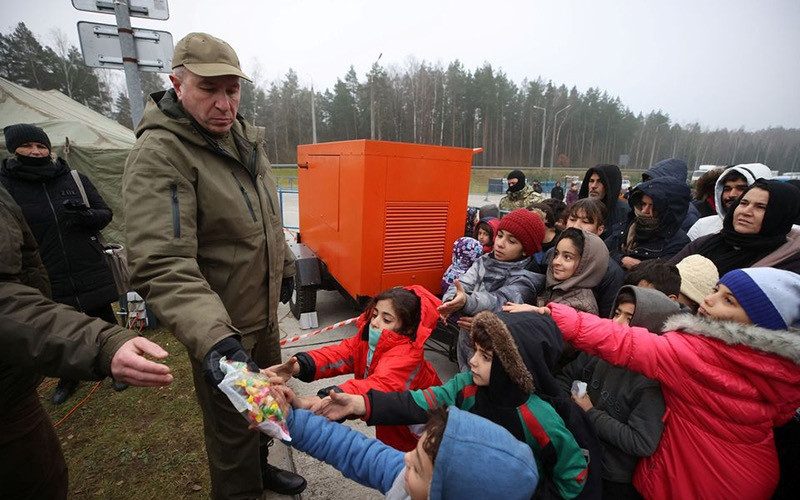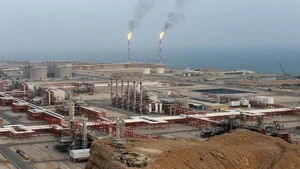2021 continued to be a tragic year for migrants trying to reach the “promised land of Europe” by sea. Tragedies such as boats sinking or shipwrecks are no longer strange on European seas.
According to a report by the International Organization for Migration (IOM), in the past year, an estimated 1,600 people have died or gone missing while crossing the Mediterranean Sea in rubber boats or rickety old boats. The Channel Tunnel connecting France and the UK in 2021 recorded a migrant wave of about 28,000 people, the highest level ever.
2021 also saw an unprecedented migrant crisis at the Belarus-Poland border. Amid the freezing cold of winter, thousands of migrants were rendered homeless, lacking food and medicine when stuck at the border of Belarus and Poland. These “sad records” cast a gloomy shadow on Europe’s 2021 migration picture.
With the desire to escape the spiral of conflict and poverty at home, migrants, mainly from the Middle East and North Africa, are willing to risk their lives to embark on the dangerous journey to Europe. Behind the life-changing dream is a cruel reality. Trafficking groups have found the way to bring migrants into Europe illegally.
According to AP, a new tactic recently used by trafficking groups is to board migrants on luxury yachts and travel on less-noticed routes, such as from Turkey to Calabria, Italy. Witnesses shared that each migrant had to pay an average of 8,500 EUR (for adults) and 4,000 EUR (for children) to join the journey. Despite spending a largeamount of money, migrants have had bad experienceswith trafficking groups cramming about 100 people below each deck to evade patrol forces.
Facing the increasingly serious migration crisis, the EU is still “controversial” about how to respond. In order to protect their borders, some European countries decided to erect fences to block the flow of migrants, and asked the EU for the necessary funding to maintain this measure. However, the European Commission (EC) opposed the construction of walls to block migrants, insisting that this is only a short-term remedy, incompatible with common European values. The EC also insisted that it will not fund these border walls.
Observers said that what is happening in the Mediterranean Sea shows that the policy of “locking the door” with migrants has many shortcomings, endangering the lives of migrants. According to researchers, among the five major crises that the EU has experienced in the past decade, including a financial crisis, terrorism, migration, Brexit, and a health crisis, migration is the only issue that has deeply and persistently divided nations.
After many high-level meetings with many proposed measures, the EU is still confused in finding an effective solution to the migration problem. Experts said that the EU should consider adjusting the legal framework related to migrants to have a more appropriate approach, in the context that the migration problem has become increasingly urgent in the face of the impact of the “COVID-19 wave”.
















